|
In this episode of The Editing Podcast, Louise Harnby and Denise Cowle talk to thriller writer Andy Maslen about the creative-writing process.
Listen to find out more about
Here's where you can find out more about Andy Maslen's thrillers. Dig into these related resources
Music Credit ‘Vivacity’ Kevin MacLeod (incompetech.com). Licensed under Creative Commons: By Attribution 3.0 License. http://creativecommons.org/licenses/by/3.0/
Louise Harnby is a line editor, copyeditor and proofreader who specializes in working with crime, mystery, suspense and thriller writers.
She is an Advanced Professional Member of the Chartered Institute of Editing and Proofreading (CIEP), a member of ACES, a Partner Member of The Alliance of Independent Authors (ALLi), and co-hosts The Editing Podcast. Visit her business website at Louise Harnby | Fiction Editor & Proofreader, say hello on Twitter at @LouiseHarnby, connect via Facebook and LinkedIn, and check out her books and courses.
0 Comments
In this episode of The Editing Podcast, Louise Harnby and Denise Cowle talk to author David Unger about transforming a novel from print to audio.
Listen to find out more about
Here's where you can find out more about David Unger's books. Dig into these related resources
Music Credit ‘Vivacity’ Kevin MacLeod (incompetech.com). Licensed under Creative Commons: By Attribution 3.0 License. http://creativecommons.org/licenses/by/3.0/
Louise Harnby is a line editor, copyeditor and proofreader who specializes in working with crime, mystery, suspense and thriller writers.
She is an Advanced Professional Member of the Chartered Institute of Editing and Proofreading (CIEP), a member of ACES, a Partner Member of The Alliance of Independent Authors (ALLi), and co-hosts The Editing Podcast. Visit her business website at Louise Harnby | Fiction Editor & Proofreader, say hello on Twitter at @LouiseHarnby, connect via Facebook and LinkedIn, and check out her books and courses.
In this episode of The Editing Podcast, Denise and Louise discuss the growth of audio in the book world, and how using sound creates reader engagement and helps build a fan base.
Click to listen to Season 4, Episode 9
Listen to find out more about:
Editing bites and other resources
Music credit ‘Vivacity’ Kevin MacLeod (incompetech.com). Licensed under Creative Commons: By Attribution 3.0 License.
Louise Harnby is a line editor, copyeditor and proofreader who specializes in working with crime, mystery, suspense and thriller writers.
She is an Advanced Professional Member of the Chartered Institute of Editing and Proofreading (CIEP), a member of ACES, a Partner Member of The Alliance of Independent Authors (ALLi), and co-hosts The Editing Podcast. Visit her business website at Louise Harnby | Fiction Editor & Proofreader, say hello on Twitter at @LouiseHarnby, connect via Facebook and LinkedIn, and check out her books and courses.
In this episode of The Editing Podcast, Louise and Denise talk to technical writer and editor John Espirian about content marketing, editing and bringing a book to market.
Click to listen to Season 4, Episode 3
Listen to find out more about:
Contacting John Espirian Editing bites and other resources
Music credit ‘Vivacity’ Kevin MacLeod (incompetech.com). Licensed under Creative Commons: By Attribution 3.0 License.
Louise Harnby is a line editor, copyeditor and proofreader who specializes in working with independent authors of commercial fiction, particularly crime, thriller and mystery writers.
She is an Advanced Professional Member of the Chartered Institute of Editing and Proofreading (CIEP), a member of ACES, a Partner Member of The Alliance of Independent Authors (ALLi), and co-hosts The Editing Podcast. Visit her business website at Louise Harnby | Fiction Editor & Proofreader, say hello on Twitter at @LouiseHarnby, connect via Facebook and LinkedIn, and check out her books and courses.
Here's the fourth part of my audio-book creation series. In this article, professional voice artist Ray Greenley discusses distribution options, the importance of having your manuscript edited prior to narration, and briefing your voice artist or producer. Here's Ray ...
Distribution decisions
So you’ve listened to your auditions, you’ve researched your potential producer and think they’re the one for your book, and you’ve come to an agreement on payment terms. There are a few other bits you’ll need to work out before you can offer the producer a contract. One is whether you want to distribute exclusively through Audible, Amazon, and iTunes for a higher share of the royalties from sales (royalties are 40% of sale price), or non-exclusively, which means you can set up distribution yourself through other platforms, but you’ll get a smaller share of royalties from sales through Audible, Amazon, and iTunes (royalties are 25% of sale price). Note that if you want to do a Royalty Share or Hybrid contract on ACX, you MUST do exclusive distribution. There’s some other information you’ll need to work out with the producer:
Different producers work at different paces; and many will have other books already waiting to be recorded. They might be able to start on your book right away and have it done in a week or two, or they might be scheduling out months in advance. Talk to your producer and let them know if you have any schedule in mind, but be ready to be flexible. Once you have those dates, you can offer the contract, and when it’s accepted you’re almost ready to go! There’s just one more thing you need to do, and that’s provide the producer with your final, ready-to-record manuscript.
Editing your manuscript
Now, I promise this isn’t just me sucking up to my gracious host, but please, for the love of all that’s good and holy, make sure your manuscript is edited and proofed by someone who knows what they’re doing. It makes the project many times more difficult when we have to struggle through bad grammar, missing punctuation, and poor formatting. In some cases (as happened with me early on), we can’t do it and the contract has to be canceled. If you find a producer who you like working with and does good work for you, then you’ll want to build that relationship into something ongoing. Handing them a manuscript that they can barely get through isn’t going to help. And while those grammar errors may seem innocuous enough on the page to your eyes, they’re VERY hard to hide in audio. Now, we producers know enough to not expect perfection. We can handle a reasonable number of errors in a manuscript. But in the end, it’s best for you, for us, and for your readers to get your manuscript properly edited, so please do it before sending the manuscript to us.
Briefing your producer
From here on out, it sort of depends on you and the producer. One thing that’s often very handy for a producer is to get some additional information about the characters in the story, including:
Also, if your book has words that your producer might have a hard time finding pronunciations for (particularly with made-up names in science fiction or fantasy books), having a key is really helpful. It’s really important to get this sort of information as early as possible while the producer is preparing to narrate the book, but before they’ve actually hit ‘record’. None of that stuff is vital; if you picked your producer well, they’ll be ready to handle all of that on their own. But having some guidance can definitely help. In the final article, we'll look at evaluating the first 15 minutes and production approval. Until then ... Resources
Contact Ray Greenley Website | Facebook | Twitter
Louise Harnby is a fiction copyeditor and proofreader who specializes in helping self-publishing writers prepare their novels for market.
She is the author of several books on business planning and marketing for editors, and runs online courses from within the Craft Your Editorial Fingerprint series. She is also an Advanced Professional Member of the Society for Editors and Proofreaders. Louise loves books, coffee and craft gin, though not always in that order. Visit her business website at Louise Harnby | Proofreader & Copyeditor, say hello on Twitter at @LouiseHarnby, or connect via Facebook and LinkedIn. If you're an author, take a look at Louise’s Writing Library and access her latest self-publishing resources, all of which are free and available instantly.
Here's more from my audio-book creation series. This time, professional voice artist Ray Greenley talks about doing it yourself, how long it will take and what kit you'll need. Over to Ray ...
In previous posts I talked about platforms (ACX), pricing, and sourcing and evaluating a professional voice artist for your audio book.
I know what you're thinking – 'There’s another option you’re not telling me about on purpose … I could avoid all these issues and just record my book myself!’ Yes, that’s true. You could. Okay … are you sure? I mean, REALLY sure? Because producing an audio book does take quite a bit of work. As a rule of thumb, a producer who knows what they’re doing will generally spend about six hours working to produce a single hour of finished audio. So if your audio book ends up being about 10 hours long, that means you could expect to spend about 60 hours working to produce it once you’ve invested the time in learning how, and the money in the equipment you’ll need. You'll need the following equipment (I'll go into more detail below):
There are some decent microphones that plug directly into your computer via USB, but generally you’ll get a better sound with an XLR microphone and a preamp.
Also, vitally, you’ll need a good space to record in. It should be quiet with plenty of sound-absorbing material in it to make the space sound as ‘dead’ as possible.
A walk-in closet can do the trick in a pinch, although chances are you’ll need some additional sound treatment to really get it acceptable. By the way, if you live in a busy area with a lot of traffic or other outside noises that you can hear from your space, then your space is no good unless you can somehow insulate against all those outside noises or are willing to record in the middle of the night when (hopefully) things are quiet. More on preamps and recording software Okay, well if you’re really on a budget, you can record using Audacity, which is free recording software. It has some solid tools and can do what you need. If you’re willing to invest some money, you can get some reasonably priced software that can do a bit more. I use Studio One Artist from Presonus, and I know some other narrators work well with Reaper. Both of those programs can be had for less than $100. There are many others as well.
For the preamp, there are some good options at a reasonable price. I currently use a Focusrite Scarlett 2i2, but I’m looking forward to upgrading to a Presonus Studio 2|6 soon.
Another reasonable option would be the Presonus AudioBox USB. One of the nice perks to getting one of the Presonus preamps is that it includes the recording software I mentioned earlier, Studio One Artist. Once again, there are lots of other options, many of which would probably be sufficient for your needs. The big question, the microphone So I can tell you that I use a Shure KSM32 and it works well for me. I’m pretty fortunate that I can sound good on such a relatively inexpensive microphone (US$499+).
Unfortunately, there’s absolutely no way to know if YOU will sound good on it, too.
Microphones really are very personal tools. One that works great for me might be terrible for you, and vice versa. Your best bet is to try several out and see what works well. The easiest way to do that is to find a specialty store that sells them; the store will often let you try some out before you buy because they’re aware of the difficulty in matching the microphone to the voice. ‘Okay, so once I’ve that all set up I’m good to go, right?’ So … no, not nearly. You still need to learn how to USE all that stuff, which takes a lot of time and effort.
I know this isn’t a surprise coming from me, but I think you’ll REALLY want to consider carefully when it comes to narrating your own book.
If you think you might really want to get into narration and put in the time and energy to learn how to do it right, then have at it. It’s very challenging work, but also very rewarding. There are very few people who have the right talents to be both a writer and a narrator, let alone have the time to train and use both sets of skills. My hat’s off to you! However, if you’re thinking you want to record your own book because you just want to try to save some money over paying a narrator to do it, or hoping to avoid the work of finding a good narrator who’ll take your book on as a Royalty Share project … please don’t. I promise it’ll take time you’d probably rather spend writing, and the chances of it really being a high-quality production are not great (no offence). In the long run, I’d bet it will cost you more than you’ll save, one way or another.
Next time we'll be looking at distribution, briefing the artist, and evaluating the first 15 minutes. Until then, thanks for reading!
Resources
Contact Ray Greenley Website | Facebook | Twitter
To read the 26-page primer in full now, visit the book's page: Audio-Book Production.
Louise Harnby is a fiction copyeditor and proofreader. She curates The Proofreader's Parlour and is the author of several books on business planning and marketing for editors and proofreaders.
Visit her business website at Louise Harnby | Proofreader & Copyeditor, say hello on Twitter at @LouiseHarnby, or connect via Facebook and LinkedIn. If you're an author, you might like to visit Louise’s Writing Library to access my latest self-publishing resources, all of which are free and available instantly.
The Begin Self-Publishing Podcast is dedicated to sharing tools, tips, advice and ideas about self-publishing from industry specialists.
The BSP host, Tim Lewis, kindly invited me onto the show to talk about fiction editing. Tim and I discuss the following:
You can listen to the full episode here: Fiction Editing with Louise Harnby Previous episodes have addressed non-fiction editing (with my friend and colleague Denise Cowle), business tips, marketing advice, social media promotion, cover design, interior formatting and publishing services. For more information, or to subscribe, go to the Begin Self-Publishing Podcast.
Louise Harnby is a fiction copyeditor and proofreader. She curates The Proofreader's Parlour and is the author of several books on business planning and marketing for editors and proofreaders.
Visit her business website at Louise Harnby | Proofreader & Copyeditor, say hello on Twitter at @LouiseHarnby, or connect via Facebook and LinkedIn. If you're an author, you might like to visit Louise’s Writing Library to access my latest self-publishing resources, all of which are free and available instantly.
Here's more from professional narrator Ray Greenley on how to create an audio book.
The following article is an excerpt from a 26-page booklet in which Ray offers his experience and advice. At the bottom of the post there's information on how to access Audio-book production: A primer for indie authors from an audio-book producer.
In this post, he focuses on evaluating the quality of a professional voice artist, and offers advice on an alternative form of contract that shifts some of the risk.
‘I don’t know anything about audio books. How can I tell if a producer will do a good job on my book?’
That’s a tough question with few solid answers, but I can offer some tips. 1. Take some time to listen to some good, well-produced audio books. You are usually safe with most stuff from the larger publishing houses and big-name authors. Try to listen to not just the narration but also to how the narration SOUNDS. Then compare that to the auditions you’ve received. 2. How loud is the recording in the pauses between sentences? There shouldn’t be a lot of background noise, but neither should it sound like the recording drops off a cliff in between sentences. 3. Are there ANY extraneous sounds in the background, like a barking dog or a car driving by? Those sorts of sounds should NEVER be in the recording and I would consider them an instant red flag. 4. Can you hear a lot of ‘mouth noise’? Strange clicks, smacking lips, that sort of thing. This is a challenge for almost all narrators, and if you catch a little, it’s not a cause for major concern. But if you find yourself distracted by the sounds, be careful. See, the thing is that a Producer on ACX really does have to be more than just a narrator. They have to be a narrator, a director, an editor, and an engineer. There are a lot of skills involved and not everyone is equally good at all the facets of each job. This is why you need to listen to more than just the performance when evaluating auditions. Note that no one is perfect and you can get a good audio book from someone who has at least a base level of competency in some the various skills while excelling in a few others. Again, it’s up to you to determine if a producer is capable enough to do a good job with your book. Also, when evaluating any producer, be sure you look them up to see what other books they’ve done. Do they have a bunch of books already out there?
Note that some producers publish under a pseudonym, so if you can’t find anything on your own, ask. If they’re really brand new and have absolutely no history to go by, don’t be afraid to ask about what sort of training they have that can give you confidence that they’ll do the job. In short, do your homework on your potential producer, or you’ll only have yourself to blame if things don’t work out!
‘Is there some other option besides making a big up-front investment for a seasoned professional or rolling the dice on an unknown talent?’
Yes, there actually is another option. How astute of you to ask! So if you think about it, the bottom line for a Pay for Production contract is that the risk is entirely on the rights holder. You put up all the cash and hope the audio book sells enough to make that money back and more, while the producer gets paid and moves on to the next project. Meanwhile, the bottom line for a Royalty Share contract is that the risk is entirely on the producer. We do all the work involved in getting the audio book recorded and don’t see any return on our time until it starts selling, while the rights holder doesn’t have to put up a dime. The third option is a split between those two, known as either a ‘Hybrid’ or ‘Stipend’ contract (the name ‘Stipend’ comes from an incentive program offered by ACX; just be aware that that program is something different than what I’m describing here). A Hybrid contract is ostensibly a Royalty Share contract, but the rights holder offers a modest Pay for Production payment in addition to the Royalty Share. The producer gets enough up front to cover some of their production costs, while the rights holder can attract a higher tier of talent to their project. Exactly how much a producer will be willing to take for their payment as part of a Hybrid contract depends on the producer, but I’d venture that most would be happy with $100 PFH. That can still add up to a fair amount of money. However, at one half to one third of what you’d expect to pay an experienced pro, it’s much more affordable. The key is that you’re going to want to be able to at least cover the post-production costs for the producer. Remember when I talked about all the things a producer needs to be good at in order to do a good job on your book? Well, most producers would really rather focus on the narration side of things, so they look for editing and mastering professionals to handle that stuff for them. They end up as better narrators, and the post-production is higher quality because they’re working with people who dedicate themselves to that aspect of the production. It’s a win–win, but it does cost the producer money. Few producers will be willing to put up that cash on a Royalty Share project with uncertain prospects. It’s bad enough to produce a book and not make any money on it. It’s even worse to produce a book and LOSE money on it! One tricky part with the Hybrid contract is that it’s not officially supported by ACX. To do one, you’ll need to set up the contract in ACX as Royalty Share and then handle the additional payment on the side. Next time, we'll look at yet another alternative: doing it yourself! Until then, thanks for reading! Resources
Contact Ray Greenley Website | Facebook | Twitter
Audio-book production: A primer for indie authors from an audio-book producer
This 26-page primer includes over 5,000 words of guidance from Ray, a professional voice artist, on the following:
To get your free copy instantly, click on the book's image (no email required):
Louise Harnby is a line editor, copyeditor and proofreader who specializes in working with crime, mystery, suspense and thriller writers.
She is an Advanced Professional Member of the Chartered Institute of Editing and Proofreading (CIEP), a member of ACES, a Partner Member of The Alliance of Independent Authors (ALLi), and co-hosts The Editing Podcast.
I'm so, so grateful to Ray Greenley for taking the time to write a comprehensive primer on audio-book creation for me! It's absolutely brilliant.
Ray's a professional voice artist (he's the narrator behind, among other audio books, Philip K Dick's The Unreconstructed M and Other Stories) but he's a fab writer as well.
I love listening to audio books, but creating them? That’s quite another matter. And yet I wanted to know more, and I figured some of you would too. And because it’s one of those aspects of self-publishing that’s just too expensive to get wrong, I felt that my writing a guide to the process simply wouldn’t do. I wanted to offer you something that would give you in-depth, honest and usable insights. That way, if you do decide to create an audio book, you can do it right. I hoped a professional narrator could furnish you with those insights, and Ray hasn’t disappointed. The following article is an excerpt from the full 26-page primer. At the bottom of the post there's information on how to access Audio-book production: A primer for indie authors from an audio-book producer. Enjoy! (And thank you, Ray!)
An introduction from the voice artist, Ray Greenley
Hello, dear author! Congratulations on your latest book! Have you considered having an audio book of your work produced? If not, you should! More and more consumers are buying audio books for a variety of reasons, and audio-book sales are booming compared to digital print sales (see Resources: Kozlowski). As an author, you absolutely want to be a part of that growing market. But audio books are an entirely different beast from print books. Getting into a new market is always intimidating. Where do you even start? I’m here to help. I’m an audio-book narrator who has worked with indie authors to produce audio-book editions of their work. In Audio-book production I give you a high-level look at what you need to know to get your book produced as an audio book. In this post, we're focusing on platforms and prices. There’s work to be done, but it’s probably not as difficult as you might think. Read on! ‘So how can I get my book produced as an audio book?’ It wasn’t all that long ago that virtually all audio-book production was handled by a few big publishers, and getting your book produced was probably a similar feat to getting a big print publisher to publish and distribute your book. That’s all changed. Getting your book produced as an audio book is easier now than it’s ever been. Probably the biggest factor in that change is a site called ACX. That stands for Audiobook Creation Exchange. It’s run by Audible.com (the world’s largest distributor of audio books, and owned by Amazon.com). It’s essentially a meeting place where rights holders (that’s you!) can list their books in order to find producers (like me!) who are interested in producing the book as an audio book. Producers (that’s the term used by ACX; consider it synonymous with narrator for the sake of this discussion) can see the listed book and submit an audio audition for it. The rights holder listens to the auditions and can offer a contract to the producer they think will do the best job. Once the producer accepts the contract, they produce the book and submit it through ACX. The rights holder can then listen to the book, and if they approve it, it gets prepared for release. ACX manages the contract, the payment of royalties, and distribution to the associated platforms (Audible.com, Amazon.com, and iTunes.com).
‘That doesn’t sound so bad, but cut to the chase: How much will all this cost me?’
Cost is, of course, always a factor. With ACX, there are multiple options that allow virtually anyone to have their book made into an audio book. But as with many things in life, you often get what you pay for. First a quick note that there is no fee from ACX for registering on their site or for listing your book. They get their money on the back end once the book goes up for sale, so they just want to encourage as many books to be produced as possible. ACX allows rights holders to offer producers two types of contracts: Pay for Production and Royalty Share. Note that regardless of the type of contract, the rights holder always gets full ownership of the audio produced. A Pay for Production contract means that you’re paying the producer a flat fee for their work. Once you’ve paid the fee, the audio book is published and you’ll receive royalties from sales of the audio book. So what’s a typical fee? Well, first off, the fee is based on the length of the completed audio book. When you offer a contract, you agree to pay a certain amount Per Finished Hour (PFH) of the audio book. So if the audio book ends up being 10 hours long, you’ll pay the agreed-upon amount times 10. What sort of PFH rate can you expect to pay? Well, it depends on the type of talent you’re looking to attract. If you want a top-rate, full-time professional narrator, you can expect to pay around $300 PFH, or even more. ‘Wait, what!? That means for my 10-hour book …’ … you’d pay around $3,000, yes. Sounds like a lot, right? Well, it is a lot, and I touch on why that number is what it is in the full ebook. But for now, let’s get back to the discussion on cost. Because you don’t have to offer that much for a Pay for Production contract. You can offer less, and are likely to get producers willing to record your book for less. Just keep in mind that as you go lower in what you’re offering, so the caliber of producers you attract to your project will change. I’d say that once you get below $200 PFH you’re pushing out of the zone where most quality producers feel like they can get a reasonable return on their time, but that may not always be the case. A quick note: There absolutely can be an aspect of negotiation with regards to the contracts you offer. ACX doesn’t care what the final number is. That’s entirely something to be worked out between you and the producer.
‘I really don’t want to put up that kind of money. Is there another option?’
Yes, there is! It’s the Royalty Share contract that I mentioned above. In this contract, you don’t pay the producer anything up front, but instead split the royalties on sales of the book with that person. ‘Hang on – I can get my book produced as an audio book without having to actually pay anything?’ Yes, that’s pretty much it! Sounds great, right? ‘It sounds too good to be true. What’s the catch?’ The catch is that the top producers are VERY selective about the Royalty Share contracts they’re willing to accept. It takes lot of time and effort to produce an audio book, and producers who are trying to pay their bills and feed their families with money from their work won’t take a second look at your book unless it has a record of strong sales. Even if your book isn’t breaking any sales records, you can still list it and are likely to get some auditions. Just be realistic about the kind of producers who are going to be sending those auditions. They may be low on experience, talent, or both. That’s not to say it’s a hopeless case. We all have to start somewhere. Once upon a time, I was that producer who was low on experience and sending out my first auditions. The author who picked me to narrate my first audio book was an indie author who had just written his first book. While I’ve learned quite a bit since that first book, and there are definitely things I would do differently now, I’m still proud of my work on it and the critical reception has been overall quite positive. But it’ll be entirely up to you to make that determination. Just as ACX allows rights holders to sign up and post their book for free, they also allow anyone to sign up as a producer and send in an audition for free. And I do mean ANYONE. Do NOT assume that just because someone is a Producer on ACX that they actually know what they’re doing. In the full edition of the ebook, I offer guidance on how to assess whether the narrator/producer is doing a good job. For now, thanks for reading! Resources
Contact Ray Greenley Website | Facebook | Twitter
Audio-book production: A primer for indie authors from an audio-book producer
This 26-page primer (available here) includes over 5,000 words of guidance from Ray, a professional voice artist, on the following:
Louise Harnby is a fiction copyeditor and proofreader. She curates The Proofreader's Parlour and is the author of several books on business planning and marketing for editors and proofreaders.
Visit her business website at Louise Harnby | Proofreader & Copyeditor, say hello on Twitter at @LouiseHarnby, or connect via Facebook and LinkedIn. If you're an author, you might like to visit Louise’s Writing Library to access my latest self-publishing resources, all of which are free and available instantly. |
BLOG ALERTSIf you'd like me to email you when a new blog post is available, sign up for blog alerts!
TESTIMONIALSDare Rogers'Louise uses her expertise to hone a story until it's razor sharp, while still allowing the author’s voice to remain dominant.'Jeff Carson'I wholeheartedly recommend her services ... Just don’t hire her when I need her.'J B Turner'Sincere thanks for a beautiful and elegant piece of work. First class.'Ayshe Gemedzhy'What makes her stand out and shine is her ability to immerse herself in your story.'Salt Publishing'A million thanks – your mark-up is perfect, as always.'CATEGORIES
All
ARCHIVES
July 2024
|
|
|
|


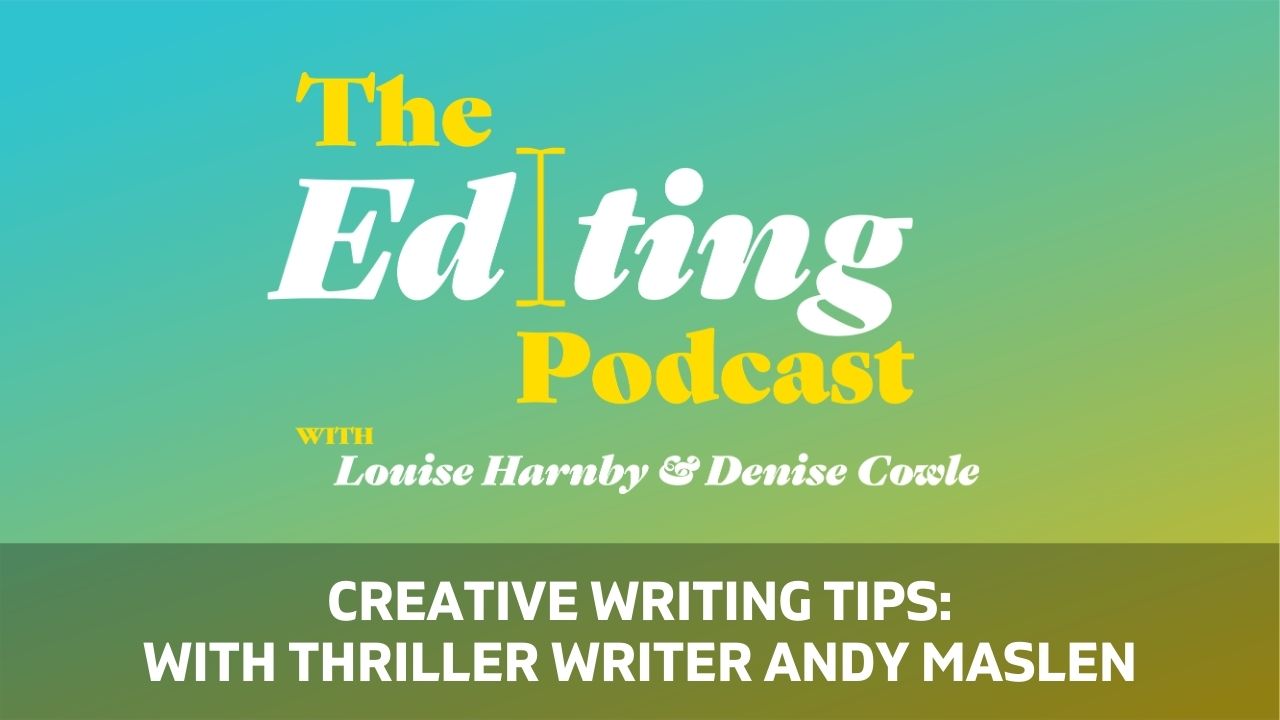
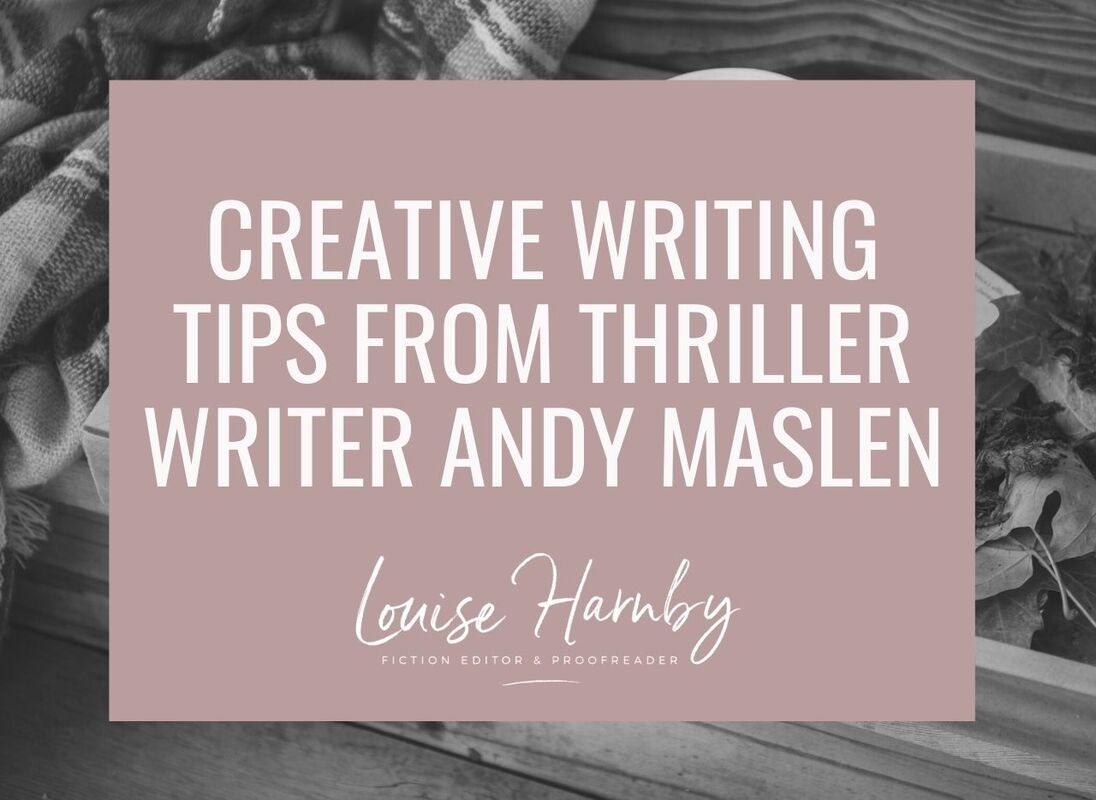
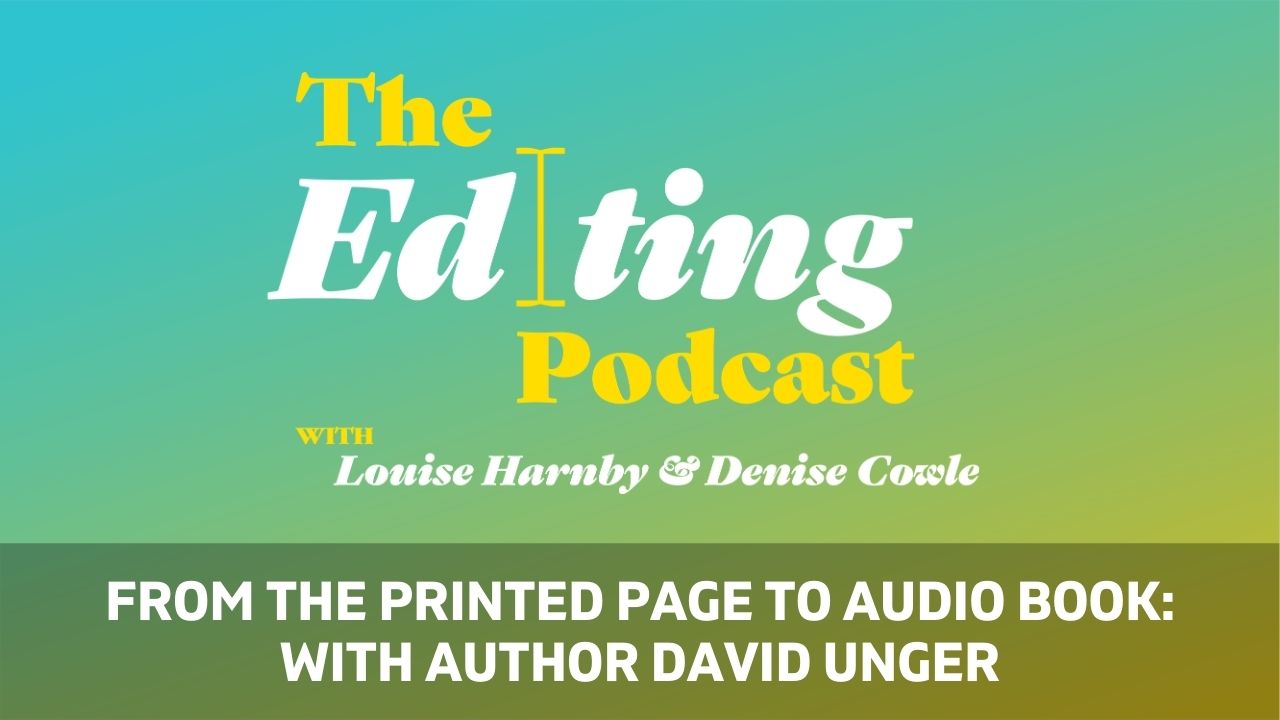
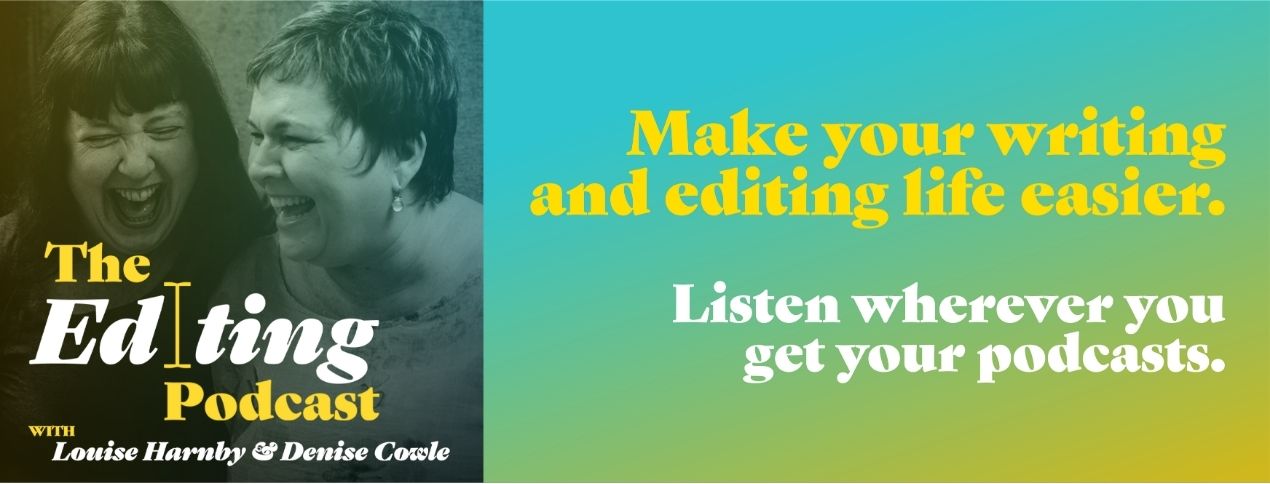
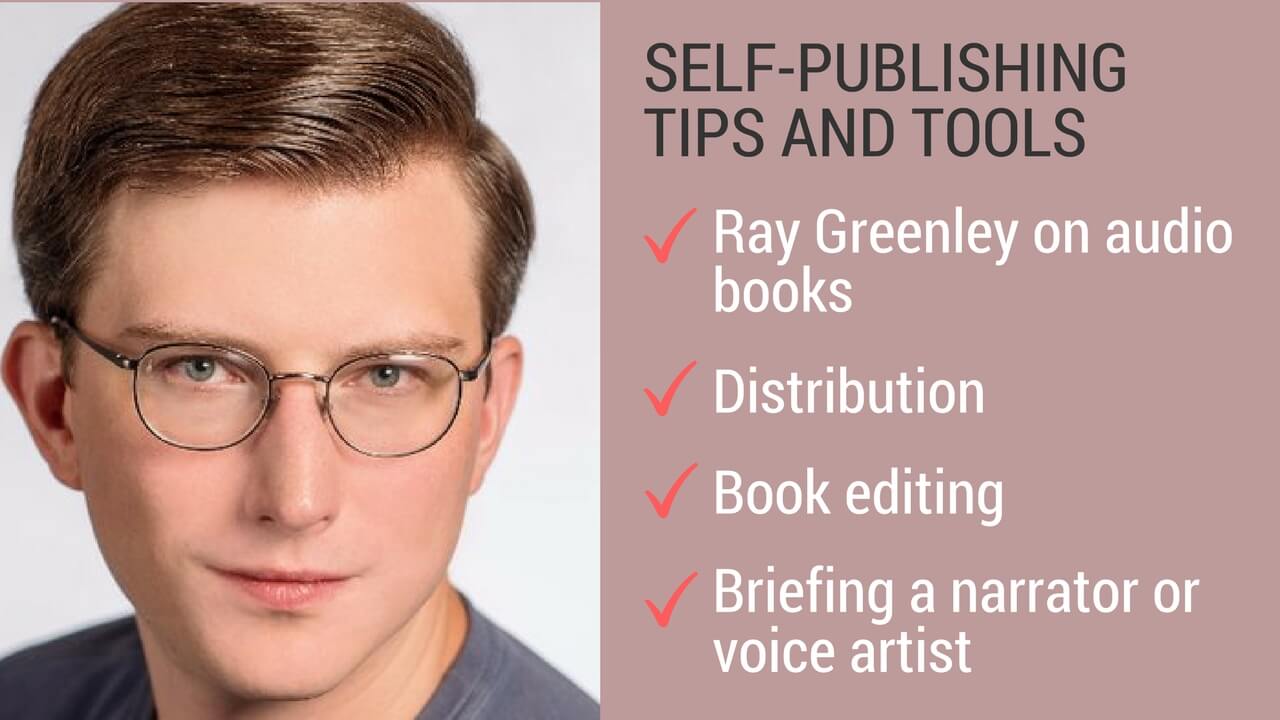
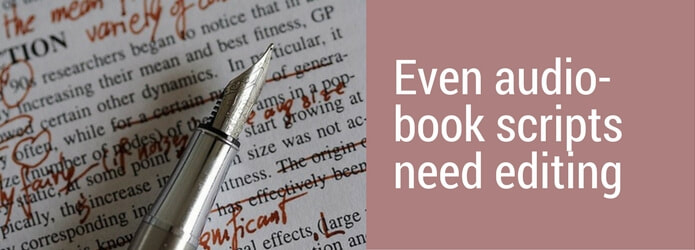

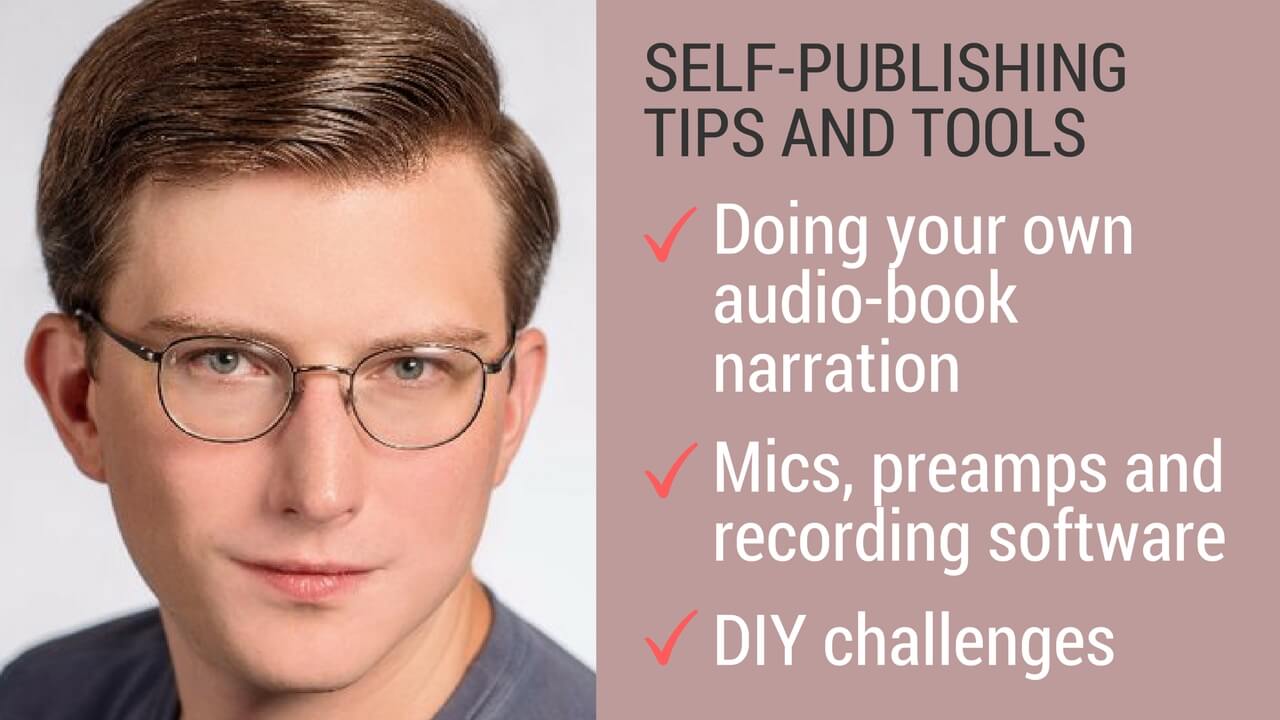
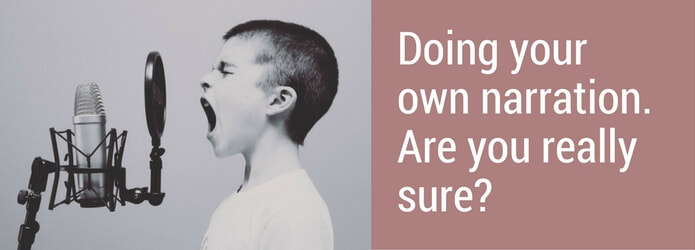
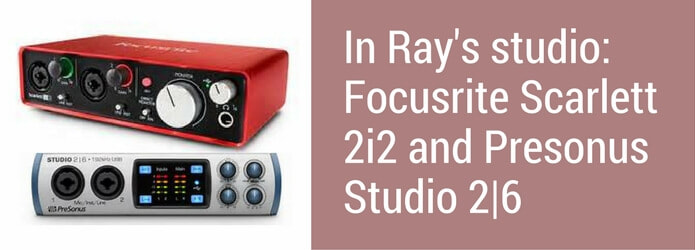
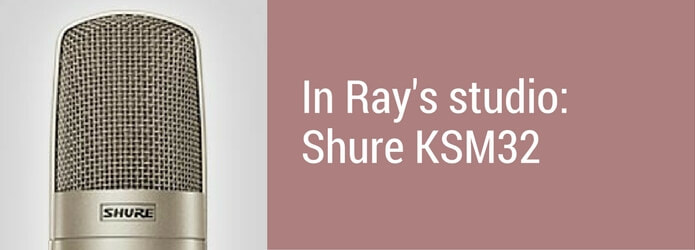
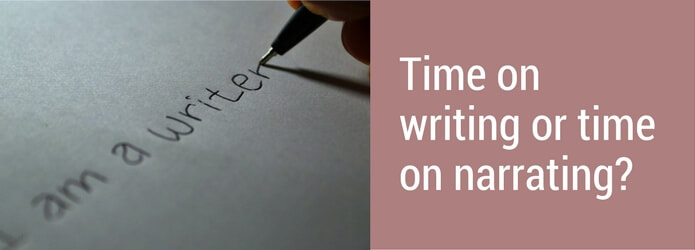
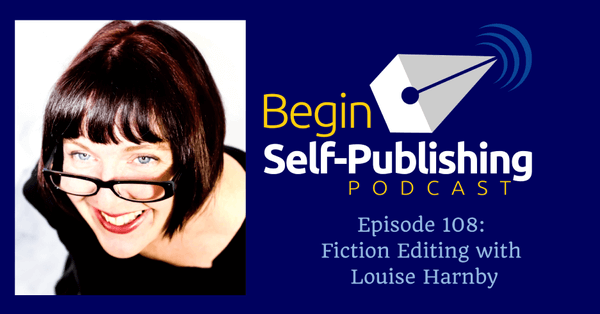
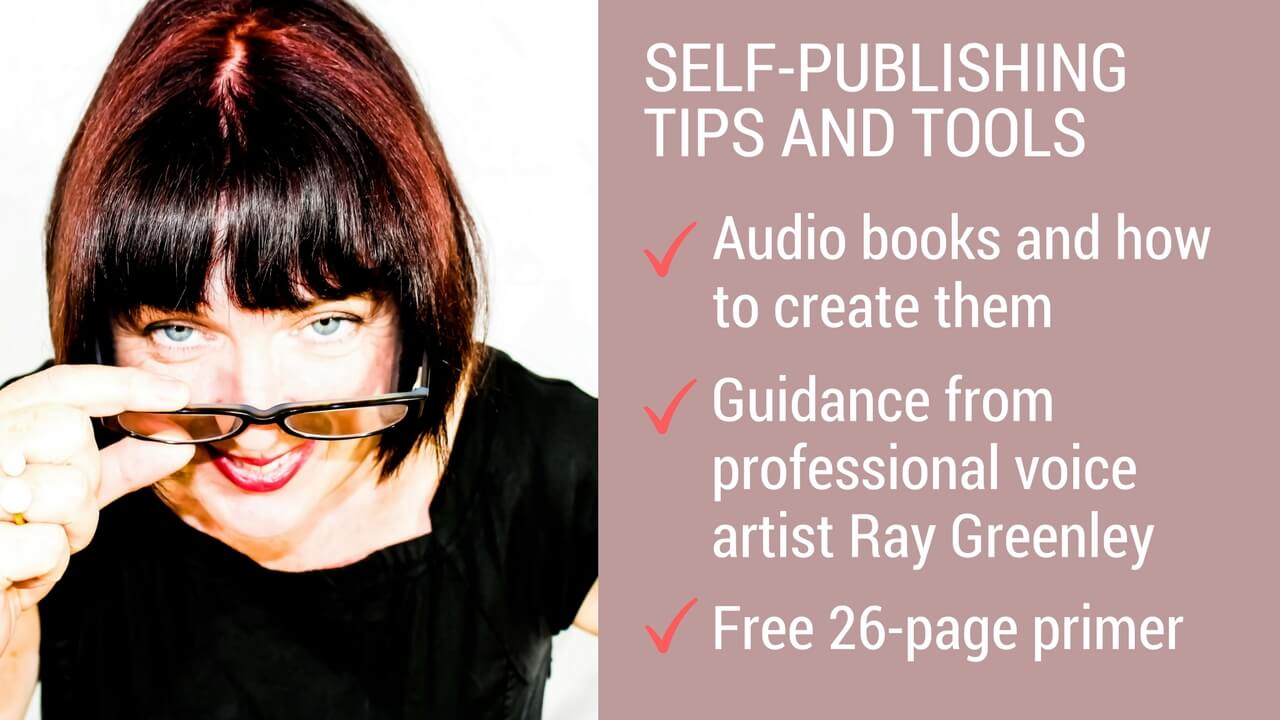

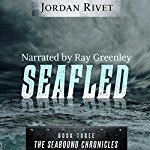
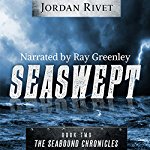
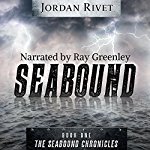
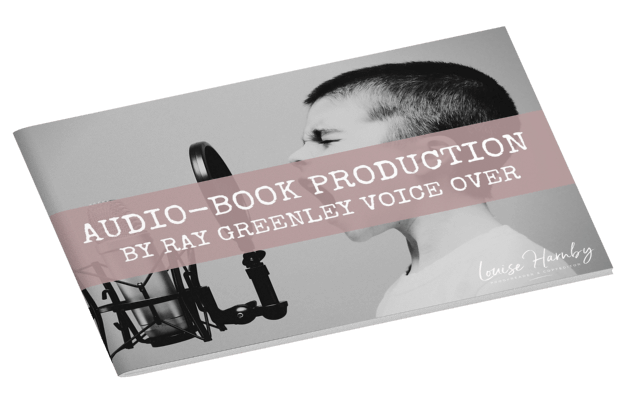
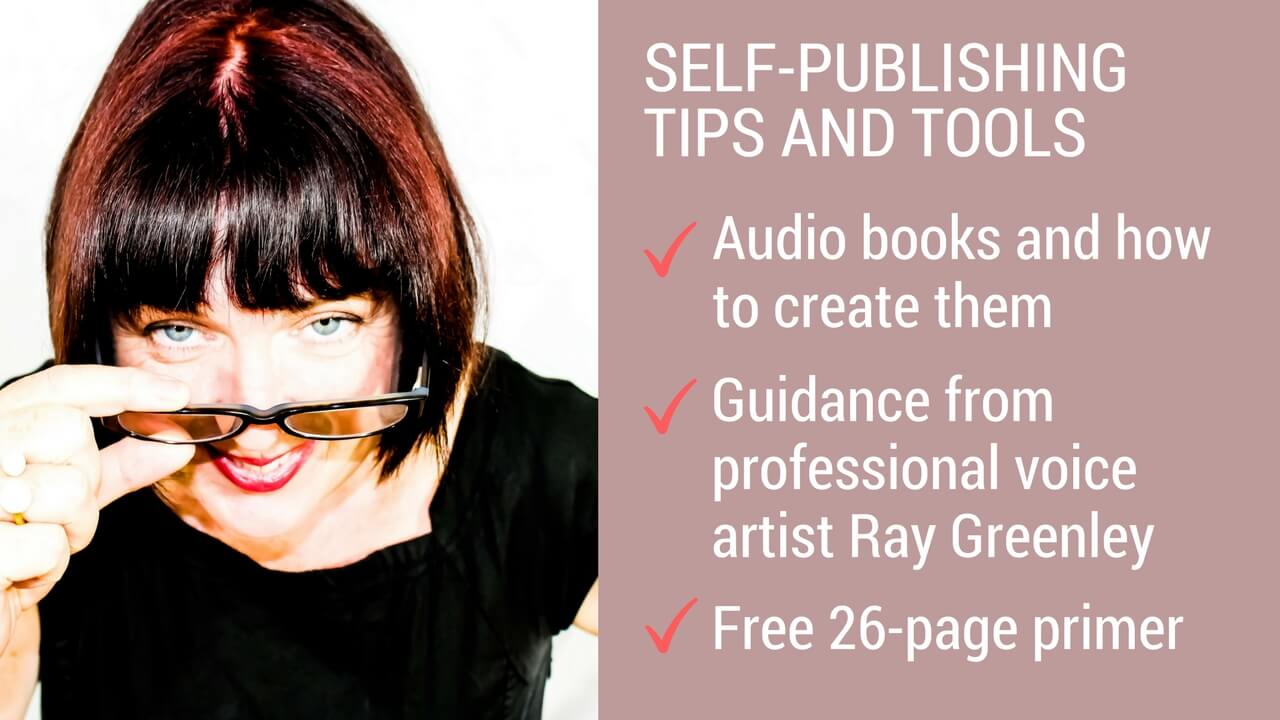



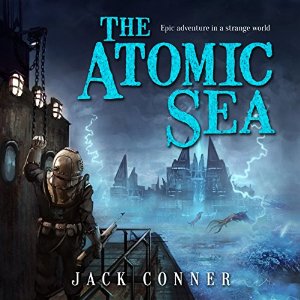
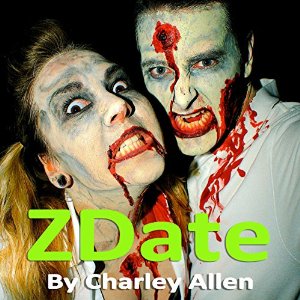
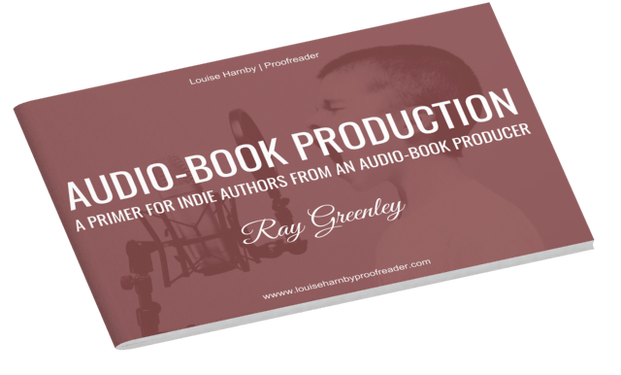













 RSS Feed
RSS Feed





